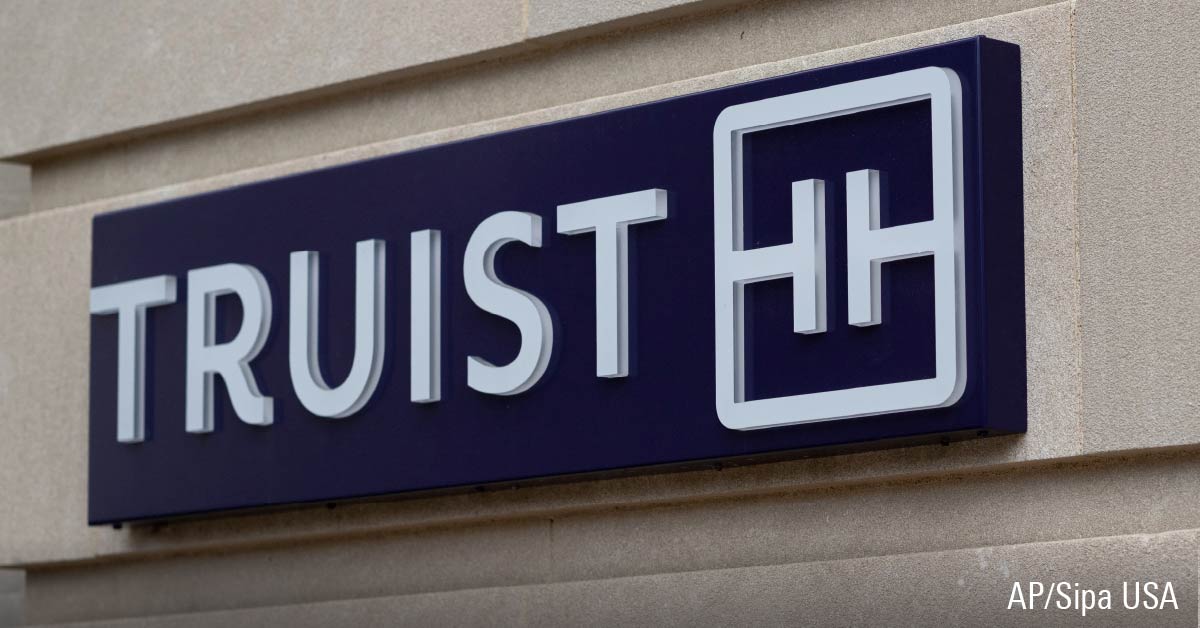Truist Earnings: Expense Control Is Working and Near-Term Capital Flexibility Is Crucial to Growth
We are confident that Truist will be able to manage core expenses to remain relatively stable for the rest of the year.

Key Morningstar Metrics for Truist Financial
- Fair Value Estimate: $50.00
- Morningstar Rating: 4 stars
- Morningstar Economic Moat Rating: Narrow
- Morningstar Uncertainty Rating: High
What We Thought of Truist Financial’s Earnings
Truist Financial TFC reported net income to common shareholders of around $1.1 billion, or $0.81 per diluted share, on $4.9 billion of net revenue. An incremental $75 million special assessment charge related to the FDIC increasing its estimated loss from the March 2023 banking events, restructuring charges, and the acceleration of inventive compensation for Truist Insurance Holdings reduced earnings per share by 16%. We do not anticipate a material change to our fair value estimate of $50 per share based on the sale of TIH, and we continue to view shares as undervalued.
Net interest income fell 13% year over year because of shrinking loan balances, higher funding costs, and the continued shift into interest-bearing deposits. Management has lowered its interest rate forecast to just three cuts, and any fewer than that will pressure full-year NII. NII for the year should trough after the second quarter while still coming in lower than in 2023. Investing the proceeds from the TIH sale and repositioning the balance sheet will be positive drivers for Truist’s NII. Still, it will probably not fully offset the tailwind from elevated deposit pricing. The NII portion of the revenue will be a key determinant of whether Truist can grow its top line from 2023, and there is still much uncertainty around rate cuts and the balance sheet repositioning planned to replace lost insurance income.
We saw 6.1% growth in overall fees this quarter from the prior quarter, primarily due to strong investment banking and trading income. Management expects this area to show continued strength throughout the year and thinks they can keep fees stable from the prior year, excluding TIH income. We are confident that Truist will be able to manage core expenses to remain relatively stable for the rest of the year. Although there will be some volatility, we think this full-year guidance is not too far off from where Truist will end up.
Truist Stock vs. Morningstar Fair Value Estimate
The author or authors do not own shares in any securities mentioned in this article. Find out about Morningstar’s editorial policies.

/s3.amazonaws.com/arc-authors/morningstar/75bbf764-3b6f-4f5a-8675-8f9488c74c04.jpg)
/cloudfront-us-east-1.images.arcpublishing.com/morningstar/ZPLVG6CJDRCOTOCETIKVMINBWU.png)
/cloudfront-us-east-1.images.arcpublishing.com/morningstar/Z34F22E3RZCQRDSGXVDDKA7FGQ.png)
/cloudfront-us-east-1.images.arcpublishing.com/morningstar/D2LN64PPEJFUFPSWUNYVGCCDLA.png)
:quality(80)/s3.amazonaws.com/arc-authors/morningstar/75bbf764-3b6f-4f5a-8675-8f9488c74c04.jpg)